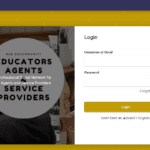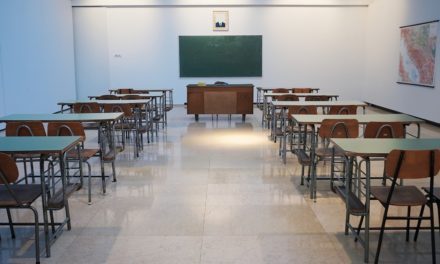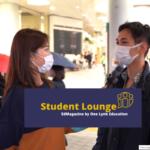
Wimbledon School of English is offering teaching and a rounded learning experience at the top of its game during tough times.

Wimbledon School of English is offering teaching and a rounded learning experience at the top of its game during tough times. The school was established in 1964 and since then gained a reputation of a centre of quality language services, welcoming atmosphere, great facilities and location. The school is located in an Edwardian house with a large garden in Wimbledon (south-west London).
We asked Fiona Dunlop, the Principal of Wimbledon School of English, to share with us her experience since the beginning of the pandemic.
Interview with Fiona Dunlop.
What were the initial steps you have taken at the beginning of the pandemic? And how it is now?
At WSE we were lucky as we had already been teaching online on a small scale for a couple of years before the pandemic. As a result, we had a number of teachers trained to do this successfully. With their help, we rolled out a detailed and ongoing developmental plan to support our teaching team in moving online.
This has worked successfully, been embraced by staff and students and we definitely see our online provision as continuing for the foreseeable future and growing from strength to strength. It is a great addition to our courses offering and reaches out to students who may not have thought to travel to the UK to study with us.
How have you managed your recruitment and how has the impact been on the number of students?
We have a team of permanent teachers who have worked throughout the pandemic to teach online and also face to face when the school could open from August to December 2020.
Of course, face to face student numbers have diminished in the last year but we believe because we could move our course provision online so successfully from the start, we have been able to continue to offer a high quality service to our partners all around the world. As a result, online student numbers have remained strong throughout the last 12 months and we have even been able to develop and deliver some really exciting new courses.
Students are keen to travel and study face to face again so we are here and ready to receive them once travel is made easier again. We have clear quarantine measures in place and thorough covid safety guidelines and procedures.
Have you had a change of interest in different programmes from students?
Students still need English for a variety of reasons from juniors courses offering Life Skills and Communication to Academic English to Professional Skills and Exam Preparation. However, what we have noticed is that flexibility and being able to move quickly is now more crucial than ever. Students want to be able to book at short notice and often at different times to the traditional timetable. This is where the ELT industry has shone in showing how quickly and successfully we can move to accommodate new demand. At WSE, feedback from students has never been better both from our face to face students and from our online students. This has really kept us going and we have appreciated every single student who has expressed an interest in studying with us.
How has the situation changed the way the school is run?
As with most ELT organisations we have had to reduce staff numbers and are currently working with a skeleton staff. This has been challenging and rewarding in equal measures as the whole team now has a better understanding of each other’s roles.
Has WSE adapted itself to delivering a new learning experience for your students? If yes, please can you tell us more about it?
Again, I go back to the idea of flexibility. We are able to deliver a variety of courses relevant to “now”. We meet the students requests for different times of day and week. Content must be contemporary and relevant for students. A plus which has come out of the pandemic is the inclusion of a more formalised asynchronous element to each course, individualised for the learner.
The welfare of students is also even more important than before and an online social programme has been a lifeline to some students during the pandemic, not to mention the different systems we have in place for checking and communicating with students in these challenging times.
What has been the response of students?
Students online and in school have been incredibly appreciative, positive and upbeat and there has been a real sense of community. Hybrid classes have also been very well received, where a student has joined their group remotely, often during quarantine, then arrived in school to join the same course face to face. The students all seem so happy to see each other when this happens and there is a sense of familiarity and ease.
I really do believe that such courses offered to students all over the world at this current time has helped their mental wellbeing in otherwise very stressful times. This is very much reflected in the high number of course extensions that we have had in the last 12 months.
What has worked well for you in terms of engaging students?
Our social programme has been very well received and has given students another opportunity to mix internationally and make friends. The trick is to offer non-threatening, fun and engaging activities, delivered by an experienced and charismatic teacher. We find our baking activities are very popular. Students have made scones, shortbread and upside down cake so far!
In class, we are lucky to have such experienced and dedicated teachers who keep the classes dynamic and focused. Our classes all incorporate brain gym activities and off-screen time along with an interactive break-out room. Fridays have become very busy for all of us as so many students have enjoyed their course so much that there is a rush to extend on a Friday.
As a staff, some of the layers have gone in terms of communication and that allows for more direct communication with students. For example, as Principal, I email our students once or twice a week with a chatty informal email and invite them to chat back to me. Many of them do reply and let me know how they are doing and what they are doing. This line of informal communication would not have been so common in the “olden days” pre-pandemic. Such changes are welcomed as positives that will be here to stay.
How is the school going to be dealing with the health and safety of the in-house students from 8th March?
We prepared for this thoroughly in preparation for the August 2020 opening so we are already experienced and ready to go. We created various working groups within the staff and consulted with students and agents to develop a set of covid safety guidelines. We worked with EUK and government guidelines to create a thorough risk assessment. These documents have all been communicated with all stakeholders and are reviewed regularly.
We have many procedures in place in the school including, of course, the use of face coverings throughout the building and hand sanitiser everywhere plus thorough and regular cleaning. We have limited our class size and monitor to ensure students are socially distancing in the Common Room and other public areas of the school. At WSE we are grateful for the beautiful garden that we have which has allowed everyone to have access to outside space.
Student and staff welfare and safety are paramount and we have enhanced our systems for checking and supporting both students and staff.
How has been the support of local authorities or/and government?
We have received very little help from the UK Government – our sector is one of the forgotten industries of the pandemic. The only real help we have had is the Government furlough scheme, which has enabled us to support our staff and keep as many as possible employed. Other than that, there has been no help from Government for our sector, unlike retail, hospitality, leisure & tourism, despite the fact that we rely on international visitors to the UK and have seen a loss of about 90% of our business.
How do you see the near future?
Cautiously optimistic as we are hearing from partners that the UK is being viewed more positively now as a destination due to the successful vaccine roll-out. Students are knocking at our doors so the next step is now for restrictions on international travel to be eased. As a school, we are preparing in the near future and beyond for a mixed offering of online, face to face and hybrid courses. It is an exciting time for students and schools as we all reflect on what change we want, what we do that is excellent and what is possible to deliver from an ELT school in a changing world. We are embracing greater flexibility and I would congratulate our industry as being an agile and attentive one that is offering teaching and a rounded learning experience at the top of its game during tough times.
Fiona has over 30 years worldwide experience in the field of English language training, including such areas as Teacher Training, Business and Soft Skills Training and Academic and School Management. She holds an MA in Psychology and an English UK/Trinity Diploma in ELT Management.
























